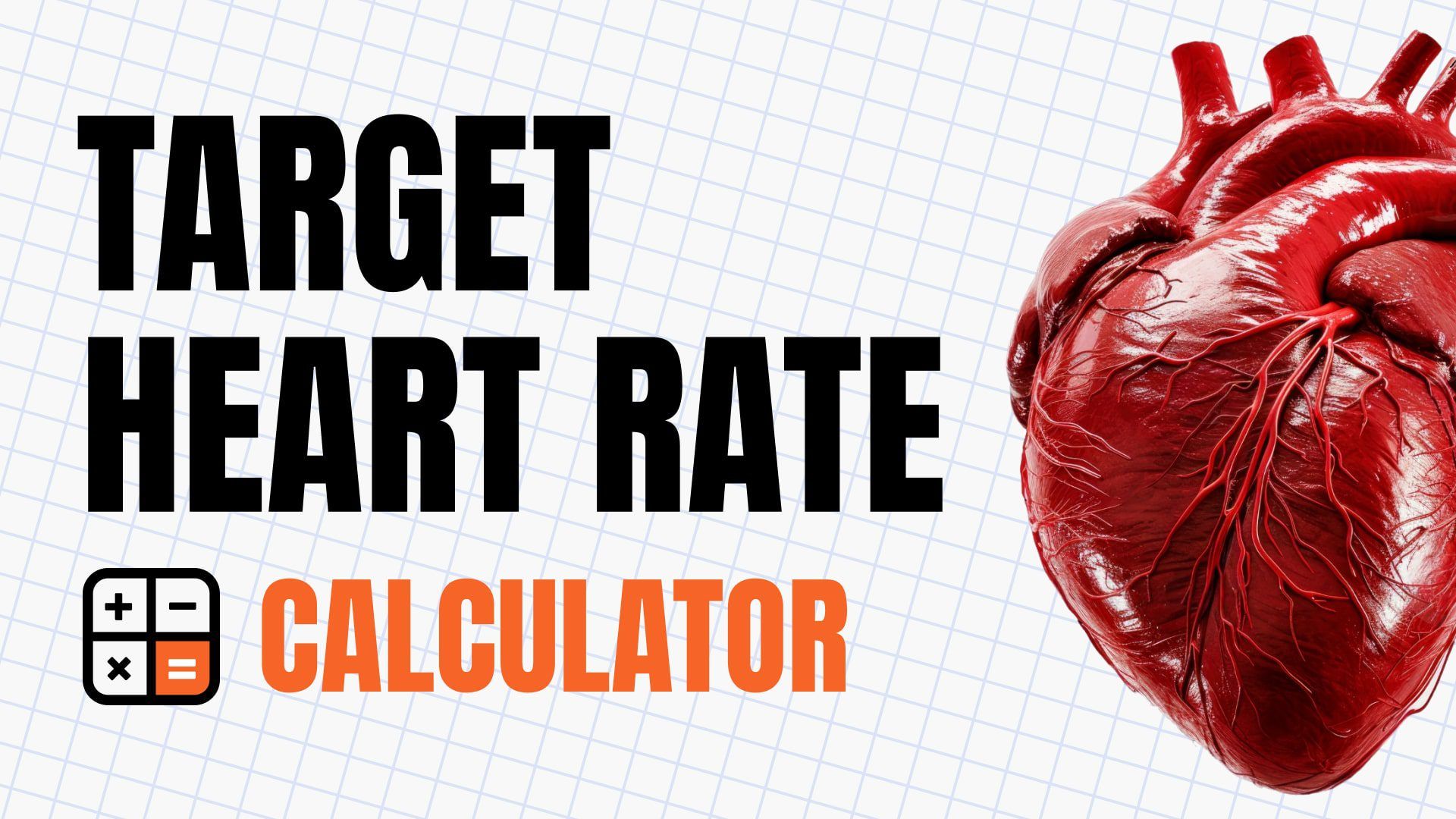Protein 101: Everything you need to know – Importance, Benefits, FAQ

Table of contents
In this article, you will learn
In this article, you will learn about protein’s crucial role in maintaining a healthy lifestyle.
We’ll explore protein, the different types of protein and their sources, and its importance for muscle health, muscle building, and hormone regulation.
Additionally, we’ll provide practical tips on incorporating enough protein into your daily diet.
By the end of this guide, you’ll understand why protein is essential for your overall health and well-being.
What is Protein?
Protein is one of the three macronutrients and the building blocks of life. It’s a vital macronutrient composed of amino acids, which are the building blocks of life.
These amino acids are linked in various sequences to form different proteins, each serving unique bodily functions.
Proteins are essential for building and repairing tissues, producing enzymes and hormones, and supporting immune function.
Types of Protein
Proteins can be categorized into:
- Complete proteins: Contain all nine essential amino acids that the body cannot produce independently. These are typically found in animal-based foods such as meat, fish, dairy, and eggs.
- Incomplete proteins: Often found in plant-based foods like beans, lentils, and nuts, lack one or more essential amino acids. However, combining different plant-based proteins can create a complete amino acid profile.
[Image suggestion: Infographic showing different sources of complete and incomplete proteins]
Importance of protein in General Health
Protein plays a critical role in maintaining general health and well-being. It is essential for:
- It repairs and regenerates cells, making it vital for wound healing and the maintenance of healthy skin, hair, and nails.
- Supporting the immune system by producing antibodies that help fight infections.
[Image suggestion: Illustration of a healthy person with labels pointing to different benefits of protein]
Importance of protein in Muscle Health & Building
Protein is fundamental for muscle health and muscle building.
After exercise, especially strength training, your muscles repair and grow, requiring adequate protein intake.
Consuming sufficient protein helps prevent muscle loss, supports muscle recovery, and promotes muscle growth, essential for overall strength and physical performance.
[Image suggestion: Before and after images of muscle building]
Importance of protein in Hormone Production & Regulation
Proteins are precursors to various hormones that regulate numerous bodily functions, including metabolism, growth, and mood.
Hormones like insulin, which regulates blood sugar levels, and growth hormones, which are crucial for development, are proteins.
Ensuring you have enough protein in your diet supports the efficient production and regulation of these hormones, contributing to overall health and well-being.
[Image suggestion: Diagram showing the relationship between protein and hormone production]
Importance of protein in Infant, Toddler, and Children diets
Protein is essential for growth and development in infants, toddlers, and children.
It supports the rapid development of tissues and organs, the immune system, and overall physical and cognitive development.
Adequate protein intake ensures children grow properly and maintain a healthy body composition.
Recommended Amount:
- Infants: 1.5 grams per kilogram (0.68 grams per pound) of body weight per day
- Toddlers: 1.1 grams per kilogram (0.5 grams per pound) of body weight per day
- Children: 0.95 grams per kilogram (0.43 grams per pound) of body weight per day
Adolescents
Protein supports significant growth spurts, muscle development, and increased physical activity levels during adolescence. It is also crucial for the development of strong bones and muscles and the maintenance of a healthy immune system.
Recommended Amount: 0.85 grams per kilogram (0.39 grams per pound) of body weight per day
Importance of protein in Adults
For adults, protein is vital for maintaining muscle mass, supporting metabolic functions, and promoting overall health.
It helps in cell repair, enzyme and hormone production and supports immune function.
Recommended Amount: 0.8 grams per kilogram (0.36 grams per pound) of body weight per day. This is the minimum recommended amount by the WHO(World Health Organization), likely less than we need to be healthy.
Importance of protein in Pregnancy
During pregnancy, protein needs increase to support the growth and development of the baby, as well as changes in the mother’s body.
Adequate protein intake is essential for the development of fetal tissues, including the brain, and helps in increasing the blood supply.
Recommended Amount: 1.1 grams per kilogram (0.5 grams per pound) of body weight per day
Importance of protein in Lactation (Breastfeeding)
Breastfeeding mothers need more protein to produce breast milk and support their health.
Protein helps maintain milk production and provides essential nutrients to the baby.
Recommended Amount: 1.3 grams per kilogram (0.59 grams per pound) of body weight per day
Importance of protein in Elderly diets
As people age, their bodies become less efficient at using protein, and muscle mass naturally declines.
Higher protein intake can help prevent muscle loss, support immune function, and improve recovery from illness or surgery.
Recommended Amount: 1.2 to 2.0 grams per kilogram (0.54 to 0.91 grams per pound) of body weight per day
Importance of protein in Muscle Building & Athletic Performance
If you’re looking to gain muscle, protein is indispensable.
Combining protein intake with resistance training enhances muscle protein synthesis, leading to hypertrophy.
Athletes and those looking to build muscle require higher protein intake to support muscle repair and growth.
Protein helps in muscle protein synthesis, improving strength, and enhancing recovery after workouts.
Recommended Amount for Muscle Building: 1.6 to 2.2 grams per kilogram (0.73 to 1.0 grams per pound) of body weight per day
Importance of protein in Weight Loss and Management
Protein aids in weight loss by promoting satiety, reducing overall calorie intake, and preserving muscle mass during calorie restriction.
It also increases the thermic effect of food, meaning the body burns more calories digesting protein than fats and carbohydrates.
Protein Intake for Weight Loss
High-protein diets can support weight loss by:
- Promoting satiety and reducing overall calorie intake.
- Requiring more energy to digest than fats and carbohydrates, your body burns more calories processing protein.
Incorporating lean protein sources into your meals can help you feel full longer and reduce unhealthy snacking.
Recommended Amount for Weight Loss: 1.2 to 1.6 grams per kilogram (0.54 to 0.73 grams per pound) of body weight per day
Importance of protein in Immune Function
Adequate protein intake is vital for maintaining a healthy immune system.
Proteins are involved in producing antibodies and immune cells that help protect the body against infections and diseases.
Importance of protein in Recovery from Illness or Surgery
Protein is crucial for recovery from illness or surgery, as it aids in tissue repair and supports immune function.
Higher protein intake can help speed up recovery and improve overall outcomes.
Recommended Amount for Recovery: 1.2 to 2.0 grams per kilogram (0.54 to 0.91 grams per pound) of body weight per day
How Much Protein Do You Need?
The recommended daily allowance (RDA) for protein varies based on age, sex, and activity level.
The RDA for protein is at least 0.8 gram per kilogram ( 1gram per pound) of body weight per day. This is based on the WHO (World Health Organization), which many people, including myself believe to be the minimum.
However, these numbers can change based on individual needs.
For example, athletes or those involved in heavy physical activities may require higher protein intake to support muscle repair and growth.
[Image suggestion: Chart or table showing recommended daily protein intake]
Risks – Can You Eat Too Much Protein?
Yes, it is possible to eat too much protein. Consuming excessive amounts can have negative health effects.
While protein is essential for various bodily functions, there is a limit to how much the body can effectively use.
With that said, it’s hard to have a surplus of protein for a regular person. You would need to eat over 3g per kilogram of body weight for prolonged periods of time.
Excess protein intake can lead to several issues:
- Kidney Strain: High protein intake can put extra strain on the kidneys, particularly in individuals with pre-existing kidney conditions. The kidneys are responsible for filtering waste products from protein metabolism, and excessive protein can increase their workload.
- Dehydration: Metabolizing protein requires more water, which can lead to dehydration if you’re not drinking enough fluids.
- Digestive Issues: Consuming too much protein, especially from supplements, can cause digestive issues such as constipation, diarrhea, and bloating.
- Nutrient Imbalance: A diet excessively high in protein can crowd out other important nutrients, such as carbohydrates and fats, leading to an unbalanced diet.
- Potential Weight Gain: While protein can aid in weight loss by promoting satiety, consuming too many calories from protein can still lead to weight gain if it results in a caloric surplus.
Best Sources of Protein
Animal-Based Protein Sources
Animal-based proteins are considered complete proteins as they contain all essential amino acids. Common sources include:
- Meat
- Fish
- Dairy
- Eggs
These proteins are highly bioavailable, meaning they are efficiently absorbed and utilized by the body.
[Image suggestion: Images of various animal-based protein sources]
Plant-Based Protein Sources
Plant-based proteins are an excellent option for vegetarians, vegans, or those looking to reduce their meat consumption.
While many plant-based proteins are incomplete, combining different sources, such as beans with rice or lentils with quinoa, can provide a complete amino acid profile. Examples of plant-based protein sources include:
- Beans
- Lentils
- Tofu
- Nuts
- Seeds
[Image suggestion: Images of various plant-based protein sources]
Protein Supplements
Protein supplements, such as whey, casein, and plant-based protein powders, can conveniently meet your daily protein needs.
These supplements are beneficial for those with increased protein requirements or struggling to get enough protein from food alone.
It’s essential to choose high-quality supplements and use them as part of a balanced diet.
[Image suggestion: Image of different protein supplement containers]
Practical Tips for Incorporating Protein into Your Diet
Meal Planning and Preparation
Planning your meals ahead of time can help ensure you meet your daily protein needs.
Here are some tips for incorporating protein into your diet:
- Include a source of protein in every meal and snack: For example, you can add eggs to your breakfast, include a serving of chicken or tofu in your lunch, and have Greek yogurt or a protein shake as a snack.
- Prepare high-protein meals in advance: Meal prepping can save time and ensure you have nutritious meals ready. Cook batches of high-protein foods like grilled chicken, quinoa, and roasted chickpeas.
[Image suggestion: Photo of a meal prep with labeled high-protein meals]
Combining Protein Sources
Mixing and matching protein sources can help you achieve a balanced diet. Here are some ideas:
- Combine animal and plant-based proteins: For example, a chicken and quinoa salad or a fish and lentil stew can provide a variety of nutrients.
- Experiment with different recipes: Keep your meals exciting and nutritious by trying new combinations of protein sources.
[Image suggestion: Infographic of a balanced plate with various protein sources]
Key Takeaways
In conclusion, understanding the role of protein in your diet is crucial for maintaining overall health, supporting muscle growth and repair, and regulating hormones.
By incorporating various protein sources and meeting your daily protein needs, you can enhance your well-being and achieve specific health goals.
Key Takeaways:
- Protein is essential for overall health. It supports cell repair, different life stages, muscle health, and hormone production.
- There are various protein sources, including animal-based, plant-based, and supplements.
- It’s crucial to meet your daily protein needs, which vary based on individual goals such as weight loss, muscle gain, or general health.
- Practical tips like meal planning and combining protein sources can help you incorporate enough protein into your diet.
For more health tips and guides, visit my blog and follow me on social media. Your journey to a healthier lifestyle starts here!
Comprehensive FAQ about Protein
General Protein Information
Why is protein essential?
Protein is essential for numerous bodily functions.
It is crucial for building and repairing tissues, producing enzymes and hormones, and supporting immune function.
Without adequate protein, our bodies would not be able to maintain muscle mass, heal wounds, or carry out many vital processes.
How do proteins help the body?
Proteins help the body by providing the building blocks (amino acids) needed for growth and repair.
They play a crucial role in muscle contraction, enzyme activity, hormone production, and fluid balance.
Proteins are also involved in transporting nutrients and oxygen throughout the body.
How do proteins function in the body?
Proteins function in the body by acting as enzymes, hormones, structural components, and transporters.
Enzymes speed up chemical reactions, hormones regulate various physiological processes, and structural proteins support and strengthen cells and tissues.
Transport proteins carry substances across cell membranes and throughout the bloodstream.
Are proteins amino acids?
Proteins comprise amino acids, organic compounds that combine to form proteins.
There are 20 different amino acids, and the sequence in which they are arranged determines the protein’s structure and function.
Nine of these amino acids are essential, meaning they must be obtained through your diet.
Are proteins polymers?
Yes, proteins are polymers. They are long chains of amino acids linked together by peptide bonds.
These chains fold into specific shapes to perform various functions in the body.
The sequence and arrangement of amino acids in a protein determine its unique structure and role.
Are proteins enzymes?
Some proteins function as enzymes. Enzymes are biological catalysts that speed up chemical reactions in the body without being consumed.
They are crucial for digestion, energy production, and many other metabolic processes.
Protein in Diet and Health
How much protein do you need?
The recommended daily allowance (RDA) for protein varies based on age, sex, and activity level.
On average, the RDA for protein is 46 grams per day for women and 56 grams per day for men.
However, these needs can increase for athletes, pregnant women, and those recovering from illness or injury.
What are the best sources of protein?
The best sources of protein include both animal and plant-based foods.
Animal sources like meat, fish, dairy, and eggs provide complete proteins with all essential amino acids.
Plant sources such as beans, lentils, tofu, nuts, and seeds can also provide adequate protein, primarily when combined, to ensure all essential amino acids are consumed.
Is animal-based protein better than plant-based protein?
Animal-based proteins are considered complete proteins as they contain all nine essential amino acids.
Plant-based proteins may lack one or more essential amino acids. Still, by combining different plant sources (e.g., beans and rice), you can achieve a complete amino acid profile.
Both sources can be part of a healthy diet.
What are the benefits of plant-based protein?
Compared to many animal-based proteins, plant-based proteins are lower in saturated fat and cholesterol and higher in fiber and essential nutrients.
They can help reduce the risk of chronic diseases, support digestive health, and contribute to a sustainable and environmentally friendly diet.
Should protein be eaten after a workout?
Yes, consuming protein after a workout helps repair and build muscle tissue broken down during exercise.
Consuming a source of protein within 30 minutes to two hours after a workout maximizes muscle recovery and growth.
Should protein be taken before a workout?
Consuming protein before a workout can provide amino acids to your muscles during exercise, potentially enhancing muscle repair and growth.
A balanced meal or snack containing protein, consumed about 1-2 hours before exercising, can be beneficial.
Should protein be spread out throughout the day?
Yes, spreading protein intake throughout the day helps maintain a steady supply of amino acids to support muscle protein synthesis and other bodily functions.
Aim to include a source of protein in each meal and snack to optimize its benefits.
Protein and Muscle Building
How does protein build muscle?
Protein builds muscle by supplying the amino acids needed for muscle protein synthesis. In this process, new muscle tissue is produced.
Resistance training and adequate protein intake stimulate muscle growth and repair, increasing muscle mass and strength.
How much protein do you need for muscle gain?
For muscle gain, consuming about 1.6 to 2.2 grams of protein per kilogram of body weight per day is recommended.
This amount supports muscle protein synthesis and helps build and maintain muscle mass, especially when combined with resistance training.
What is the best time to consume protein for muscle building?
The best time to consume protein for muscle building is around your workouts.
Consuming protein within 30 minutes to two hours after exercising can enhance muscle recovery and growth.
Additionally, spreading protein intake evenly throughout the day ensures a constant supply of amino acids for muscle maintenance.
Protein and Weight Management
How does protein help with weight loss?
Protein helps with weight loss by increasing satiety, reducing overall calorie intake, and boosting metabolism.
Compared to fats and carbohydrates, protein requires more energy to digest, which means your body burns more calories processing it.
Including high-protein foods in your meals can help control hunger and support weight loss.
Can protein powder help with weight loss?
Yes, protein powder can be a convenient way to increase protein intake, support muscle maintenance, and promote satiety, all of which are important for weight loss.
Choosing a high-quality protein powder and incorporating it into a balanced diet can aid in weight management.
What protein powder is best for weight loss?
Whey protein isolate, casein, and plant-based protein powders (such as pea or hemp protein) are all excellent options for weight loss.
Look for protein powders that are low in added sugars and artificial ingredients.
Combining protein powder with a balanced diet and regular exercise can enhance weight loss efforts.
Protein and Special Conditions
Is protein intake important for the elderly?
Protein intake is crucial for the elderly to prevent muscle loss, support immune function, and maintain overall health.
As people age, their bodies become less efficient at utilizing protein, so higher protein intake may be necessary to meet their needs.
How much protein do the elderly need?
Elderly individuals may require more protein than younger adults.
To help maintain muscle mass and support overall health, it is recommended that elderly adults consume about 1.2 to 2.0 grams of protein per kilogram of body weight per day.
Can I drink protein shakes while pregnant?
Yes, protein shakes can be a convenient way to meet increased protein needs during pregnancy.
However, it is vital to choose high-quality protein shakes with minimal additives and consult a healthcare provider to ensure they fit into a balanced prenatal diet.
Can I drink protein shakes while breastfeeding?
Yes, drinking protein shakes while breastfeeding can help meet increased nutritional needs.
Protein is essential for milk production and overall health.
As with pregnancy, choose high-quality protein shakes and consult a healthcare provider to ensure they are appropriate for your diet.
Protein and Food Sources
Where is protein found in food?
Protein is found in various foods, including animal-based sources like meat, fish, dairy, and eggs, and plant-based sources such as beans, lentils, tofu, nuts, seeds, and whole grains.
Including a mix of these foods in your diet can help ensure adequate protein intake.
What foods are high in protein?
High-protein foods include:
- Animal-based: chicken, beef, pork, fish, eggs, dairy products (milk, cheese, yogurt)
- Plant-based: beans, lentils, chickpeas, tofu, tempeh, nuts, seeds, quinoa
What are some high-protein meal ideas?
Some high-protein meal ideas include:
- Grilled chicken with quinoa and steamed vegetables
- Lentil soup with a side of whole-grain bread
- Greek yogurt with berries and a sprinkle of nuts
- Tofu stir-fry with mixed vegetables and brown rice
- Scrambled eggs with spinach and whole-grain toast
How can I incorporate more protein into my diet?
To incorporate more protein into your diet:
- Add protein-rich foods to each meal and snack.
- Choose high-protein snacks like Greek yogurt, nuts, or hummus with veggies.
- Incorporate plant-based proteins such as beans, lentils, and tofu into your meals.
- Use protein supplements like protein powder in smoothies or baked goods.
- Experiment with new recipes that feature high-protein ingredients.
Protein Supplements
What are the different types of protein supplements?
Common types of protein supplements include:
- Whey protein: quickly absorbed, ideal for post-workout.
- Casein protein: slowly absorbed, suitable for nighttime use.
- Plant-based proteins: made from sources like peas, hemp, or rice, suitable for vegetarians and vegans.
- Soy protein: a complete plant-based protein with all essential amino acids.
How do protein supplements compare to whole foods?
Protein supplements can be a convenient way to meet protein needs, especially for those with increased requirements or limited dietary intake.
However, whole foods provide additional nutrients, such as vitamins, minerals, and fiber, which are important for overall health.
Ideally, supplements complement a diet rich in whole, nutrient-dense foods.
What should I look for in a protein supplement?
When choosing a protein supplement, look for:
- High-quality protein sources (whey, casein, or plant-based).
- Minimal added sugars and artificial ingredients.
- Transparency in labeling and third-party testing.
- Suitability for your dietary preferences (e.g., vegan, lactose-free).
Works Cited and Relevant Links
- Davies, N. (2011). Promoting healthy ageing: The importance of lifestyle. Nursing Standard.
- Lemon, P. W. R. (1996). Is increased dietary protein necessary or beneficial for individuals with a physically active lifestyle? Nutrition Reviews.
- Dima-Cozma, C., Gavrilută, C., & Mitrea, G. (2014). The importance of healthy lifestyle in modern society: A medical, social, and spiritual perspective. European Journal of.
- Burd, N. A., McKenna, C. F., & Salvador, A. F. (2019). Dietary protein quantity, quality, and exercise are key to healthy living: A muscle-centric perspective across the lifespan. Frontiers in Nutrition.
- Paddon-Jones, D., Campbell, W. W., & Jacques, P. F. (2015). Protein and healthy aging. The American Journal of of Clinical Nutrition.
- Beaudry, K. M., & Devries, M. C. (2019). Nutritional strategies to combat type 2 diabetes in aging adults: The importance of protein. Frontiers in Nutrition.
- Liu, A. Y., Silvestre, M. P., & Poppitt, S. D. (2015). Prevention of type 2 diabetes through lifestyle modification: Is there a role for higher-protein diets? Advances in Nutrition.
- Ford, K. L., Arends, J., Atherton, P. J., & Engelen, M. P. K. J. (2022). The importance of protein sources to support muscle anabolism in cancer: An expert group opinion. Clinical Nutrition.
- Campbell, A. P., & Rains, T. M. (2015). Dietary protein is important in the practical management of prediabetes and type 2 diabetes. The Journal of Nutrition.
- Shevkani, K., & Chourasia, S. (2021). Dietary proteins: Functions, health benefits and healthy aging. Nutrition, Food, and Diet in Ageing and Longevity.
This is a personal blog. I am not a doctor, fitness coach, nutritionist, or trained health professional. The information I share is based on my personal experience, self-research, and insights from working with health and wellness professionals. My content is for informational and entertainment purposes only and is not intended as health advice.
Always consult with your healthcare provider before making any significant changes to your health routines or treatments. I am not liable for any actions taken based on this information.
With that said, your well-being is my top priority. Stay healthy and take care!
Credits and Team
















Leave a Reply